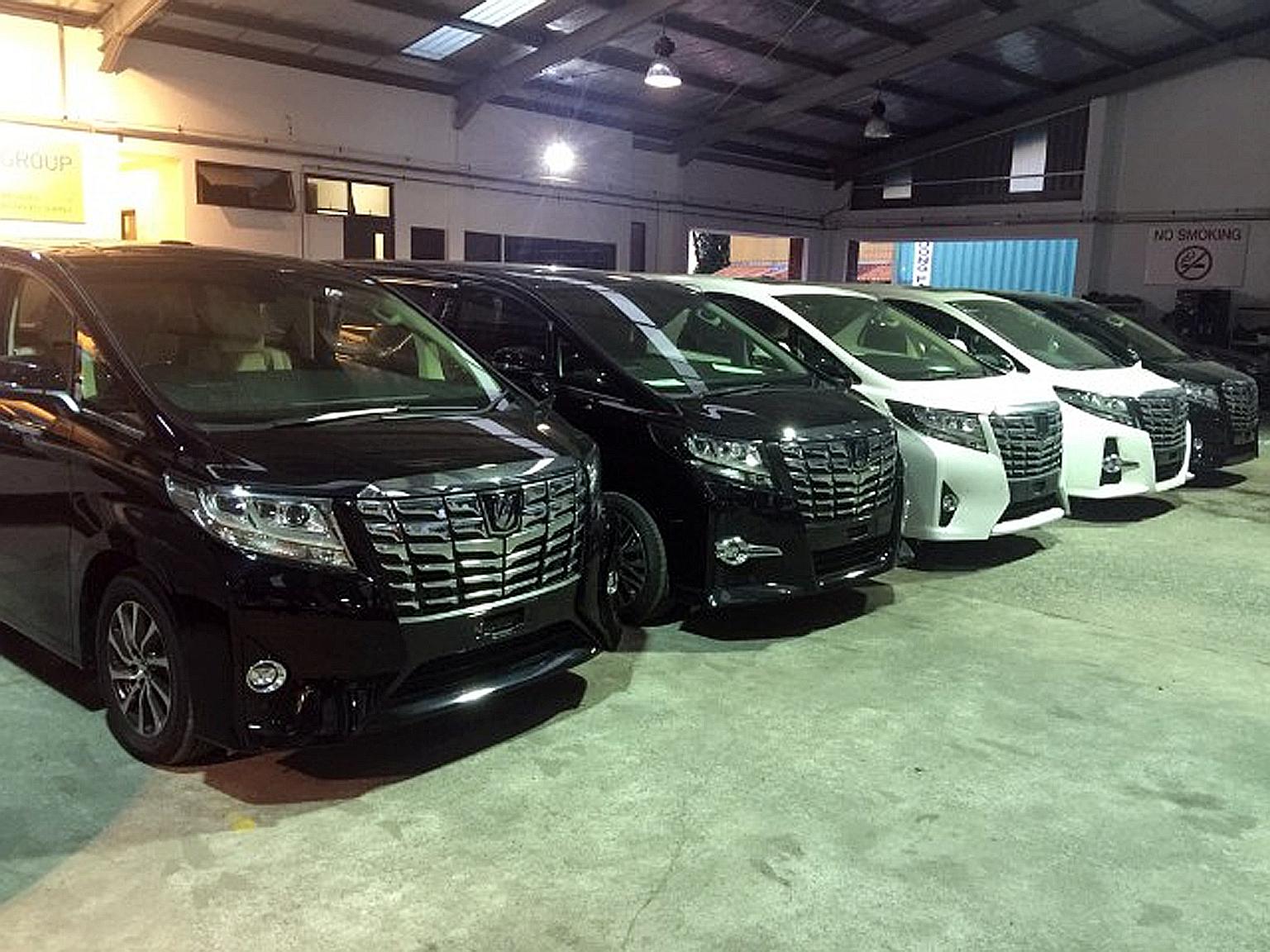More taxi firms eyeing Uber business model
They set up their own private-hire and limousine services to retain drivers amid growth of third-party taxi apps
Sign up now: Get ST's newsletters delivered to your inbox

Prime Taxi's fleet of private-hire Toyota Alphard limousines. The taxi operator has a private-hire fleet of 300 today, but managing director Neo Nam Heng says he plans to raise it to "500-plus in the next one year". This comes as third-party taxi apps have proliferated in the last three years, led by Uber and Grab.
PHOTO: PRIME GROUP
Follow topic:
Taxi operators are taking the fight to Uber and Grab by setting up their own private-hire and limousine arms.
The aim is to retain drivers who have begun to defect to the fast-expanding private-hire fleets run by the third-party taxi app providers.
The Straits Times understands that SMRT Corp, the third-largest taxi group here, has ordered a fleet of more than 300 new Toyota Vellfire MPVs, Corolla Altis sedans and some Lexus cars for this purpose.
In a recent announcement to the Stock Exchange, SMRT said it has set up a wholly-owned indirect subsidiary known as Strides Transportation with a paid-up capital of $2.
"The principal business activities of Strides Transportation are limousine and chauffeured services, and car rental," SMRT said.
Trans-Cab, which is the second- largest taxi operator here, is doing likewise. Managing director Teo Kiang Ang said: "We're just starting. We will have mainly the (Toyota Corolla) Altis as well as bigger cars."
Mr Teo said the changing industry landscape prompted him to move in this new direction.
In the last three years, third-party taxi apps have proliferated, led by Uber and Grab. Both companies are said to control close to 10,000 cars combined.
Tuesday's announcement by the Transport Ministry - which said that transport app providers will be regulated with a "light touch" - is likely to spur the growth of the sector.
Taxi industry players noted that unlike cab companies, the newcomers are not required to meet service standards, their fleet expansion will not be restricted, they do not need to buy insurance policies that cover passengers, there is no restriction on vehicle age, and their cars attract far lower road taxes than cabs.
Others said the fast-expanding third-party fleet will eventually impact cabbies' earnings as they are competing for a fixed market that is not growing nearly as fast.
Asked if Premier Taxi would also start a business unit to counter Uber and Grab, Premier Taxi managing director Lim Chong Boo said: "If there are no other regulatory changes, then we'll be forced to look into it."
The first to branch out into this new business was Prime Taxi, which started a fleet in 2014.
It has a private-hire fleet of 300 today, but managing director Neo Nam Heng said he now plans to raise it to "500-plus in the next one year". The only company that is not jumping onto the bandwagon is ComfortDelGro, the biggest taxi operator here.
Dr Walter Theseira, an economist at SIM University, said: "Taxi companies have to understand that innovation in their business model is needed rather than just attempting to replicate or ride on the success of Uber and Grab."
The only significant difference between taxis and private-hire cars is that the latter are not allowed to pick up street hails.
But Dr Theseira said: "If apps continue gaining in popularity, the street-hail monopoly will become less and less valuable, and that will make driving taxis less profitable than driving for Uber."

